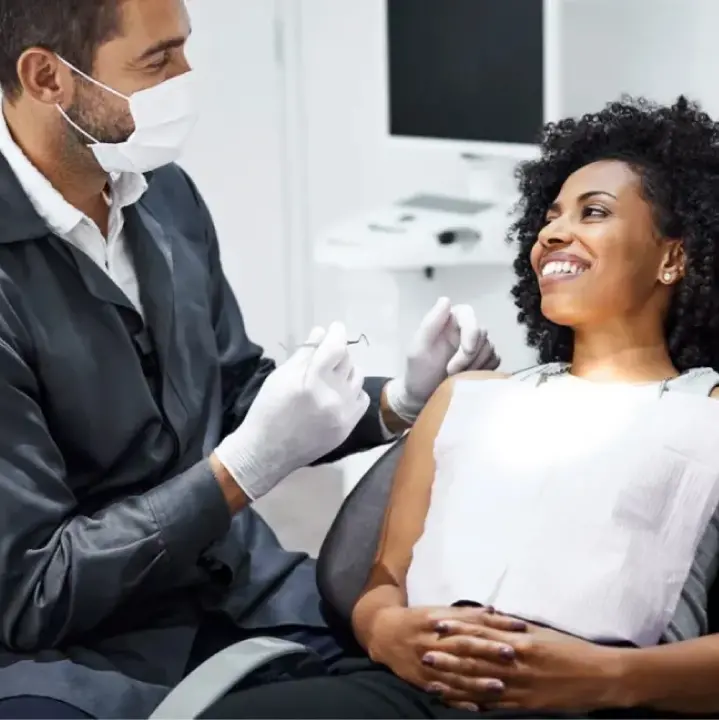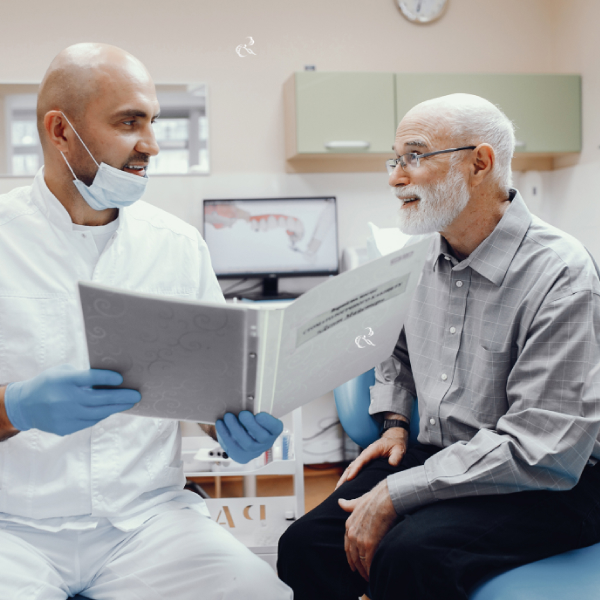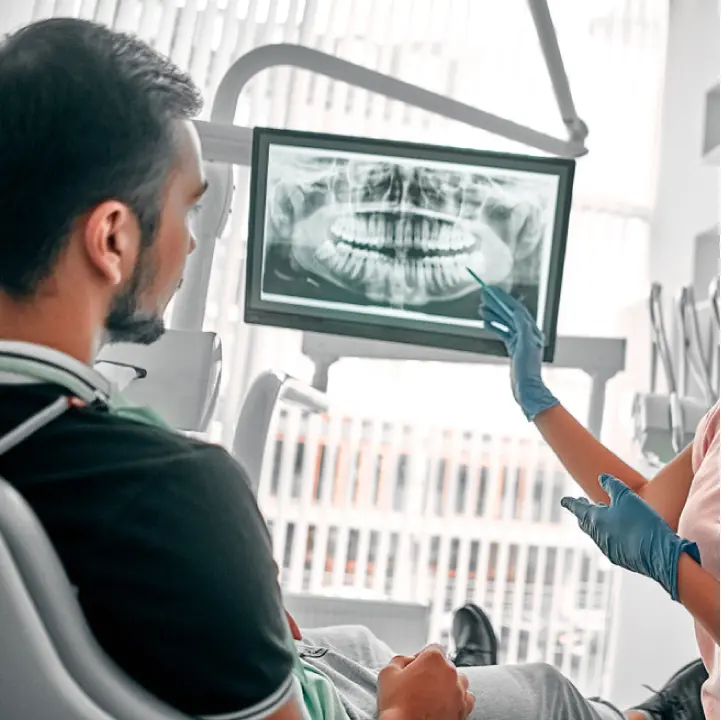
Dental X-rays
What are dental X-rays?
Dental X-rays, also known as dental radiographs, are specialized images that offer a behind-the-scenes look at your teeth, gums and jawbone. These X-rays are vital for diagnosing conditions that are not visible during a routine dental checkup. They are also useful for tracking changes to your smile to pinpoint any possible concerns.
Dental issues detected through dental X-rays
Dental X-rays are a valuable diagnostic tool. Below are some of the conditions that can be detected:
Cavities
One of the most common uses of dental X-rays is to detect cavities, especially those that form between teeth or under existing fillings. Learn more about cavities here.
Gum disease
Also known as periodontal disease, dental X-rays can show signs of gum disease by revealing changes in the bone level around the teeth. Learn more about gum disease here.
Abscesses and infections
Dental X-rays are a valuable diagnostic tool. Below are some of the conditions that can be detected:
Impacted teeth
Teeth that have failed to emerge through the gums, commonly seen with wisdom teeth, reveal on X-rays if they need to be surgically removed.
Dental abnormalities
Cysts, tumors and other pathological changes in the oral cavity can be detected with more advanced X-rays like panoramic X-rays or CBCT.
Bone loss
Dental X-rays can reveal bone loss in the jaw, which is important for diagnosing conditions like periodontal disease.
Developmental problems in children
X-rays are vital for monitoring tooth development and are particularly useful for identifying dental issues related to tooth alignment or spacing.
Evaluating treatments
If you’re getting dental implants, aligners or other dental treatments, X-rays provide essential information for treatment planning.
Foreign objects
Dental X-rays are a valuable diagnostic tool. Below are some of the conditions that can be detected:
Types of dental X-rays
There are different types of dental X-rays available, depending on your needs. Your Celebrate Dental dentist will help you determine which is best for you. The options include:
1. Cutting-edge technology
Celebrate Dental uses the latest digital technology, offering top-notch image quality and minimal radiation exposure.
2. Expertise
Highly skilled dental professionals are experts at capturing and interpreting digital X-rays, ensuring an accurate and efficient diagnosis.
3. Patient-centered care
The speed and clarity of digital X-rays allows you to make quicker and more informed decisions about your dental care. This puts you at the center of your treatment planning process.
Revolutionizing dental diagnostics: digital X-ray technology
At Celebrate Dental, we offer precise digital imaging to get a comprehensive look at your teeth. Digital X-rays provide many benefits for both you and your dentist, including:
The power of digital imaging
Digital imaging allows X-rays to be sent directly to a computer, becoming instantly available for viewing, storing or printing.
Reduced radiation exposure
Digital X-rays require far less radiation exposure compared to traditional film X-rays, making it safer for you.
Immediate availability
X-rays are viewable on-screen within seconds, making consultation and treatment planning more efficient.
Enhanced image quality
Digital technology offers incredible image clarity. The image can be magnified and enhanced allowing your dentist to quickly diagnose any concerns.
Seamless sharing capabilities
Need to see a specialist? Digital X-rays can be electronically sent to other providers along with your dental history.
Digital subtraction radiography
Subtraction radiography allows your dentist to digitally compare your current and past X-rays. This can reveal even the slightest changes that otherwise may have gone unnoticed.
Why choose Aspen Dental for digital X-rays?
1. 1. Cutting-edge technology
Celebrate Dental uses the latest digital technology, offering top-notch image quality and minimal radiation exposure.
2. 2. Expertise
Highly skilled dental professionals are experts at capturing and interpreting digital X-rays, ensuring an accurate and efficient diagnosis.
3. 3. Patient-centered care
The speed and clarity of digital X-rays allows you to make quicker and more informed decisions about your dental care. This puts you at the center of your treatment planning process.
After a dental X-ray

Review
Your dentist will review the X-rays and discuss any findings with you. They will also answer any questions you have and discuss possible treatment options.

Treatment plan
Based on the X-ray results, your dentist will develop a treatment plan tailored to your needs.

Digital records
You may request a copy of your X-rays for your records or for a second opinion, if necessary.
Dental X-ray cost
The cost of dental X-rays depends on factors such as your geographical location, the type of X-ray and whether you have dental insurance. Basic bitewing X-rays may cost between $25 and $75, while more specialized X-rays, like panoramic or 3D images, can range from $100 to $250 or more. Contact your local Celebrate Dental for a precise cost estimate tailored to your specific needs and to confirm what portion of the cost is covered by your insurance.
Dental X-ray frequently asked questions?
Can you get dental x-rays when pregnant?
Dental X-rays are generally considered safe during pregnancy, especially when proper protective measures like lead aprons are used to shield the abdomen and thyroid.
How often should you get dental x-rays?
The frequency of X-rays depends on your individual needs. Generally, if you’re a new patient, a set of X-rays will be taken for a comprehensive overview of your dental condition. Your dentist may recommend additional imaging based on your oral health history or if concerns are found during a routine checkup.
Are dental x-rays safe?
Yes, dental X-rays are generally considered safe, as they expose you to a very low level of radiation compared to other types of X-rays. Modern techniques and protective measures like lead aprons further minimize the risks, making the procedure safe for children and adults.
How do you read dental x-rays?
Reading dental X-rays is a specialized skill that requires training in radiology and dentistry. Your dentist is the best person to interpret these images, they typically look for abnormalities like cavities, bone loss and impacted teeth to assess your oral health needs.
Discover more for your smile
Our Doctors’ Affiliations




